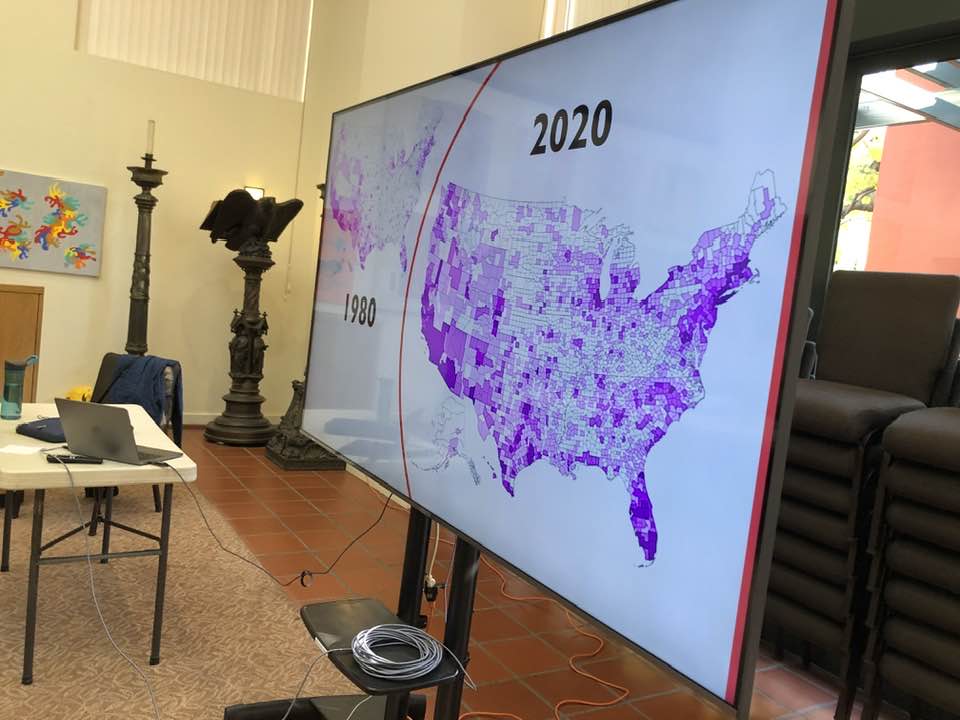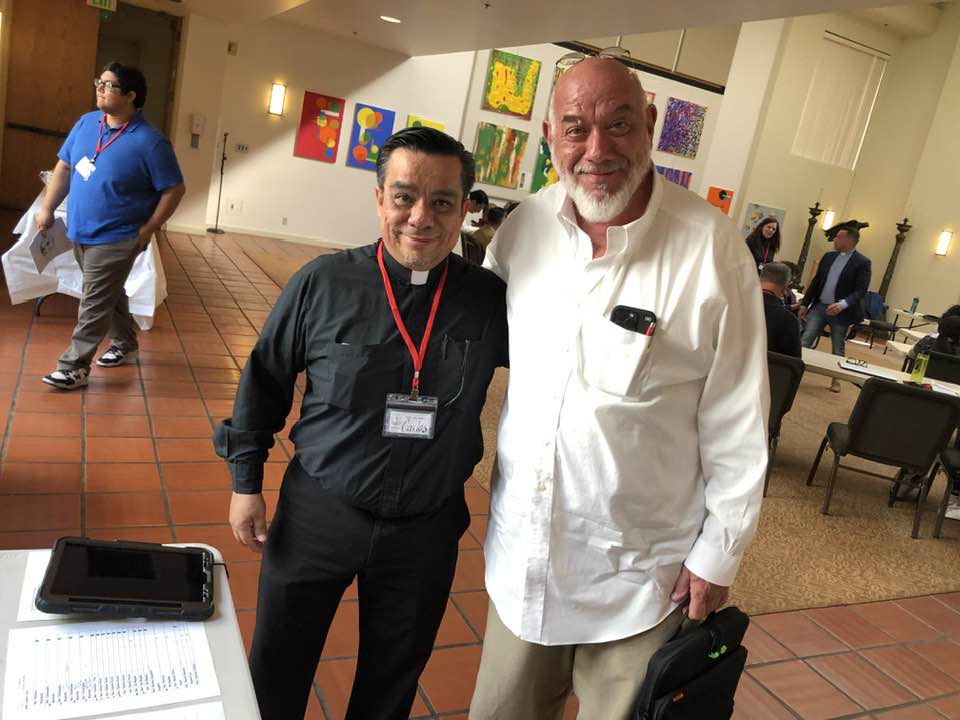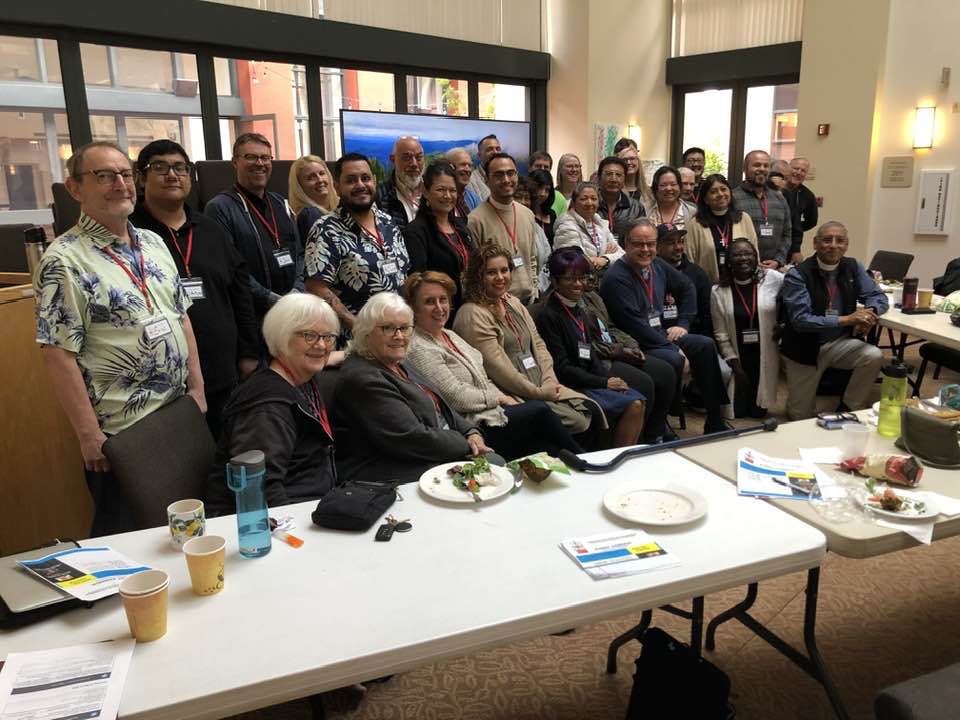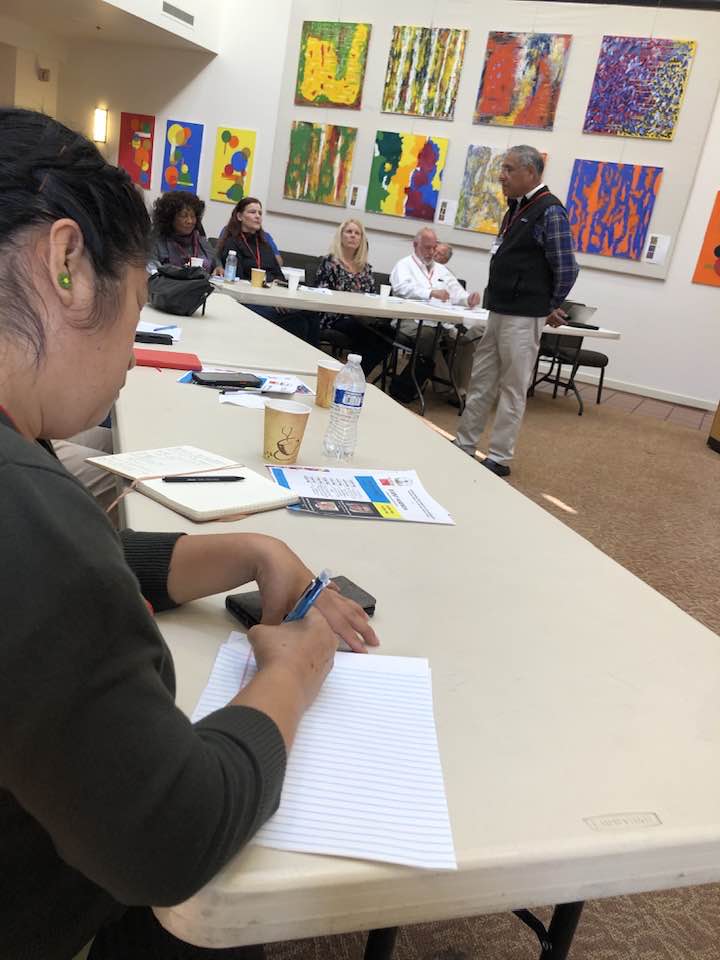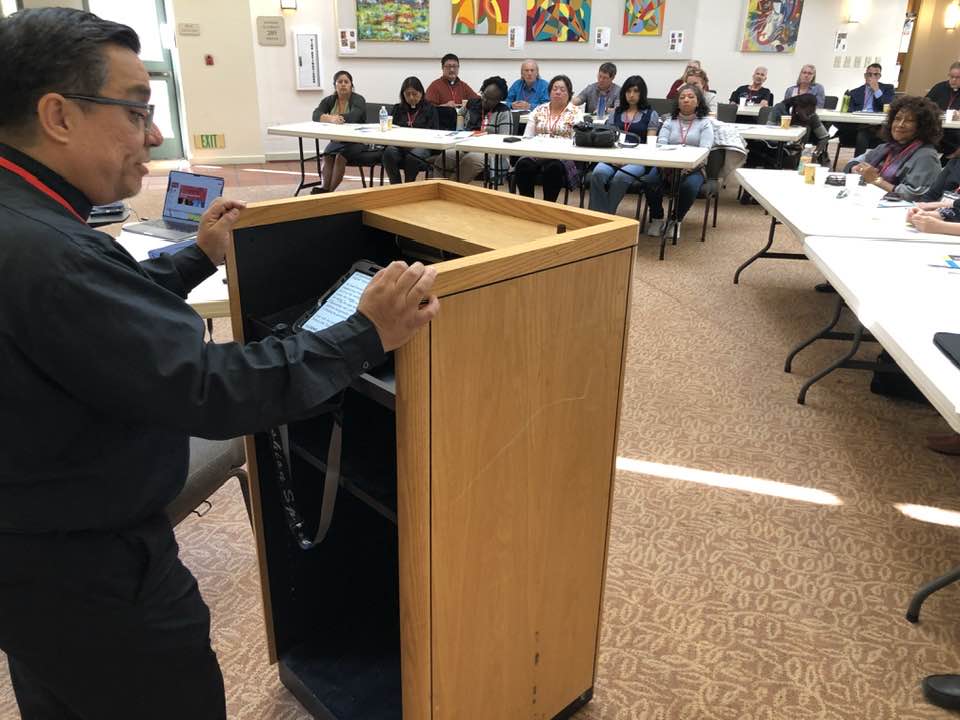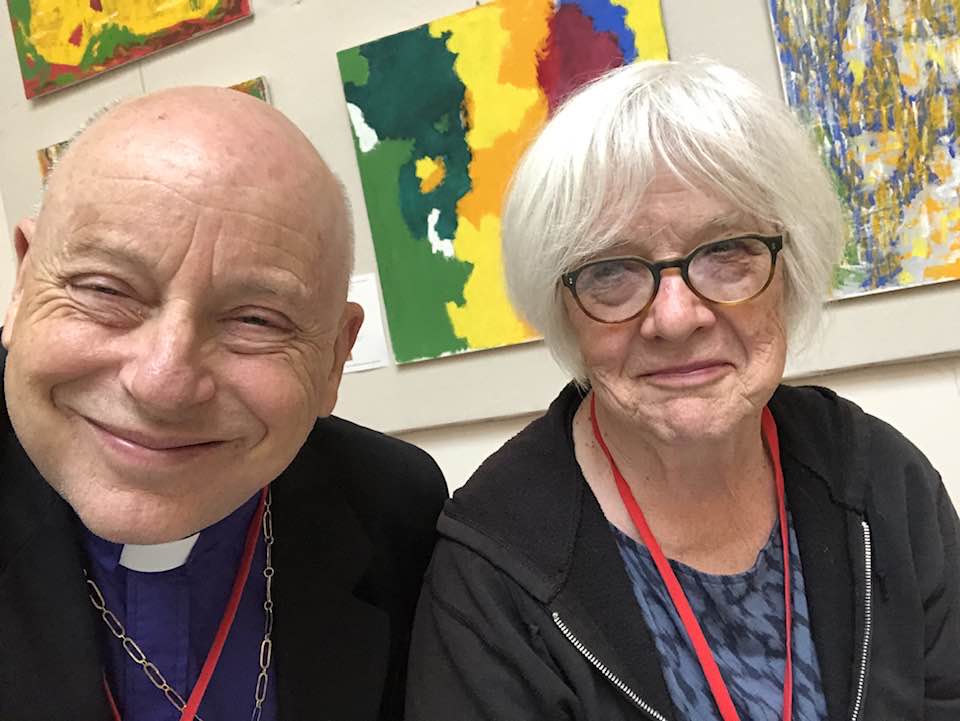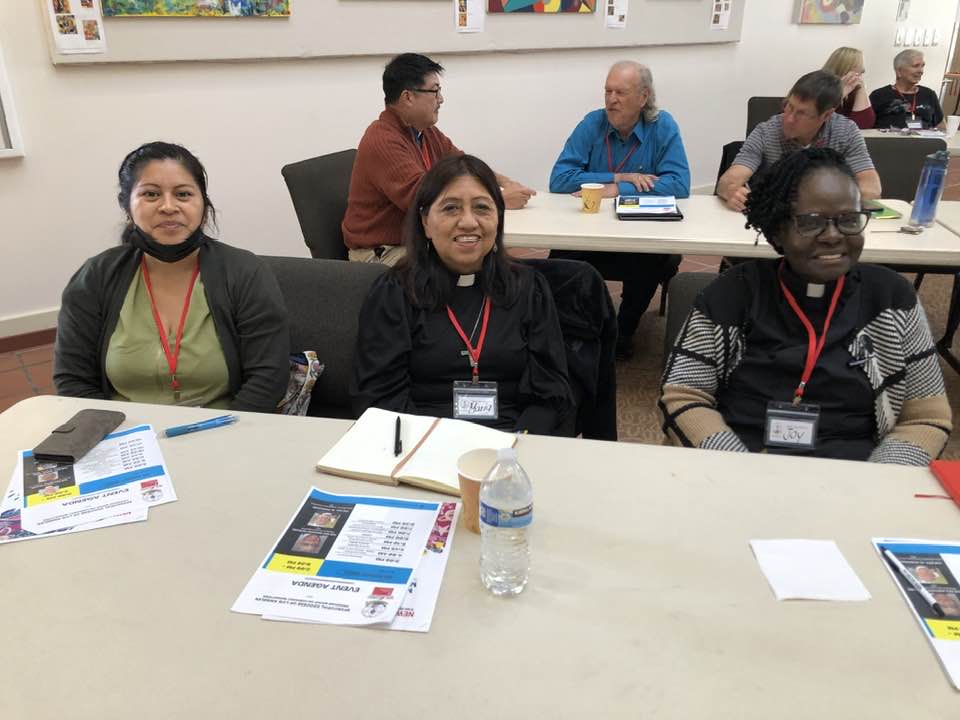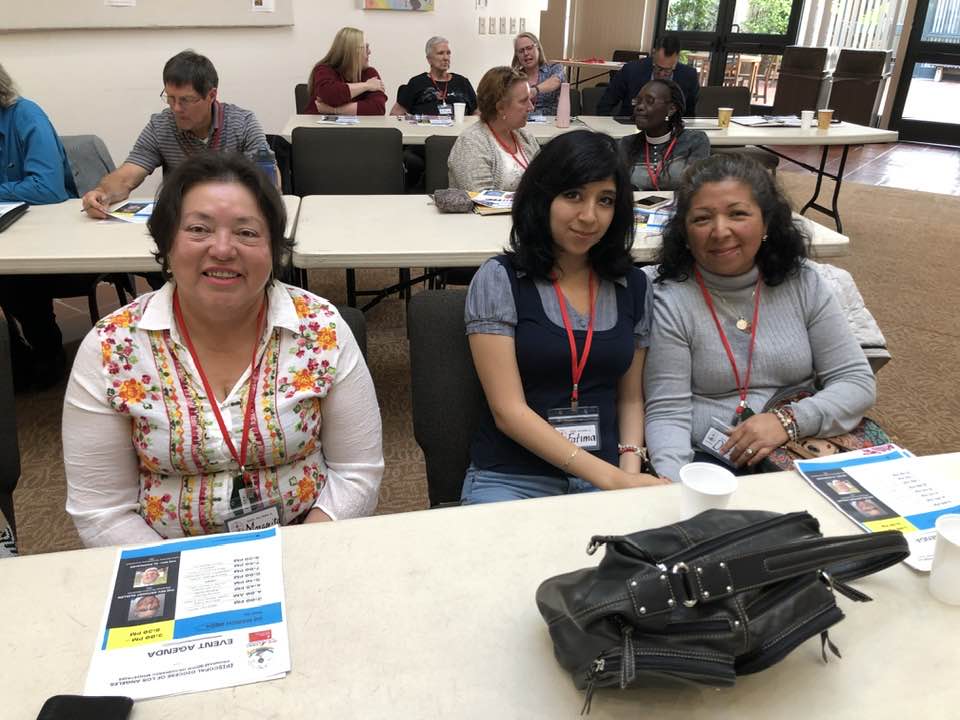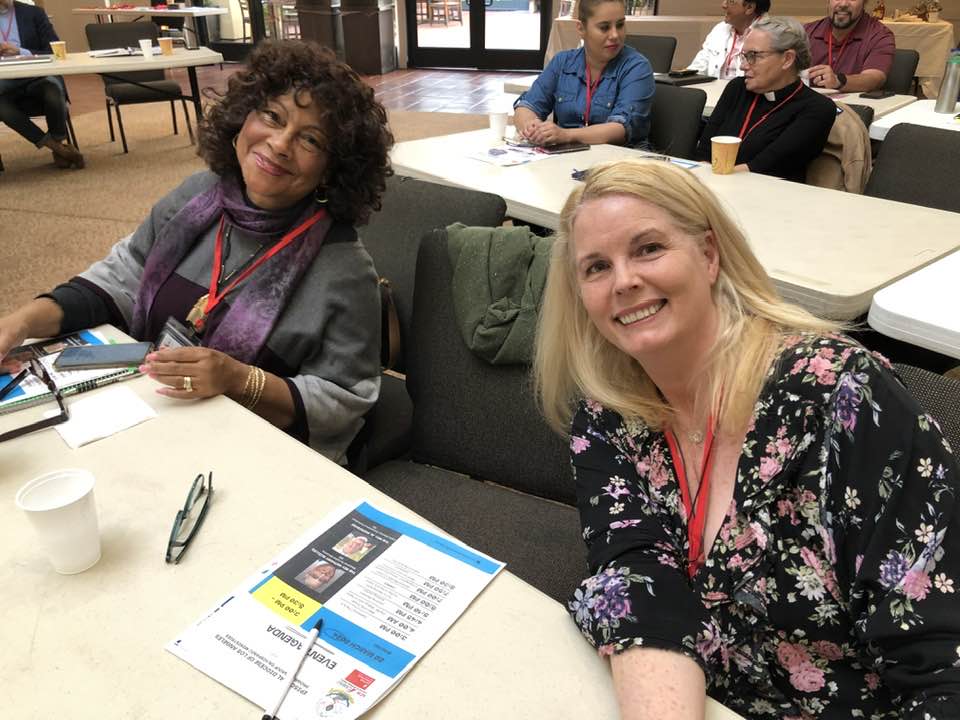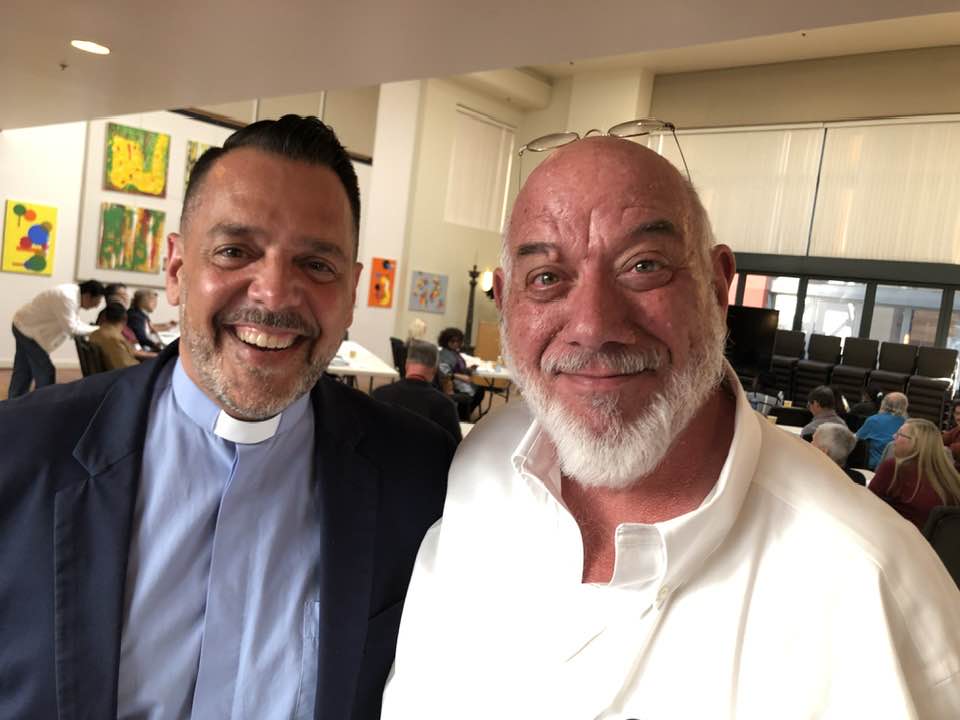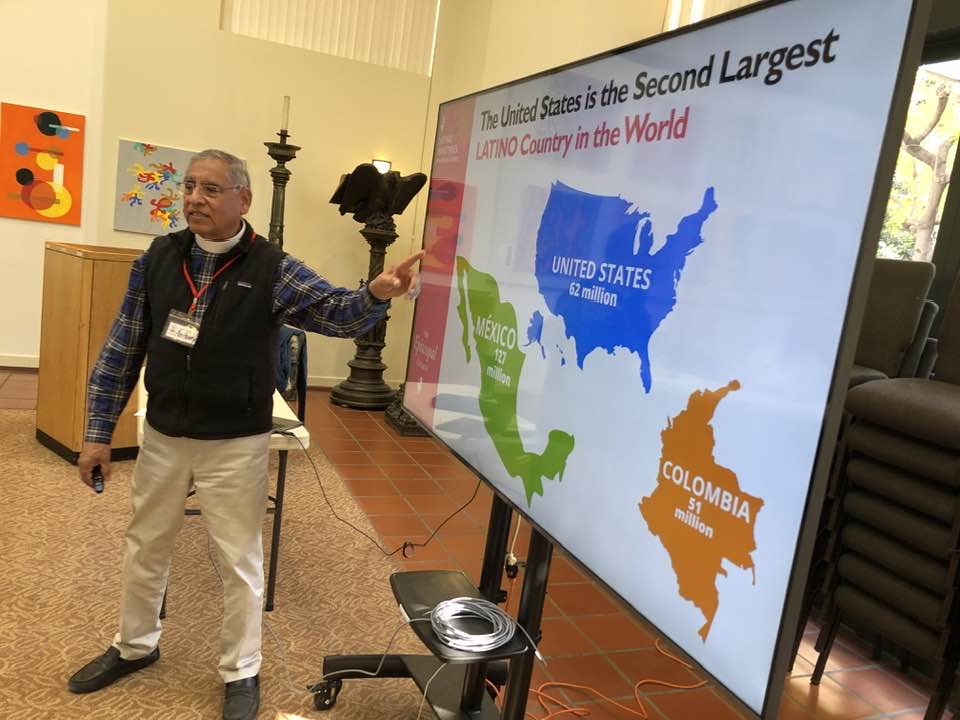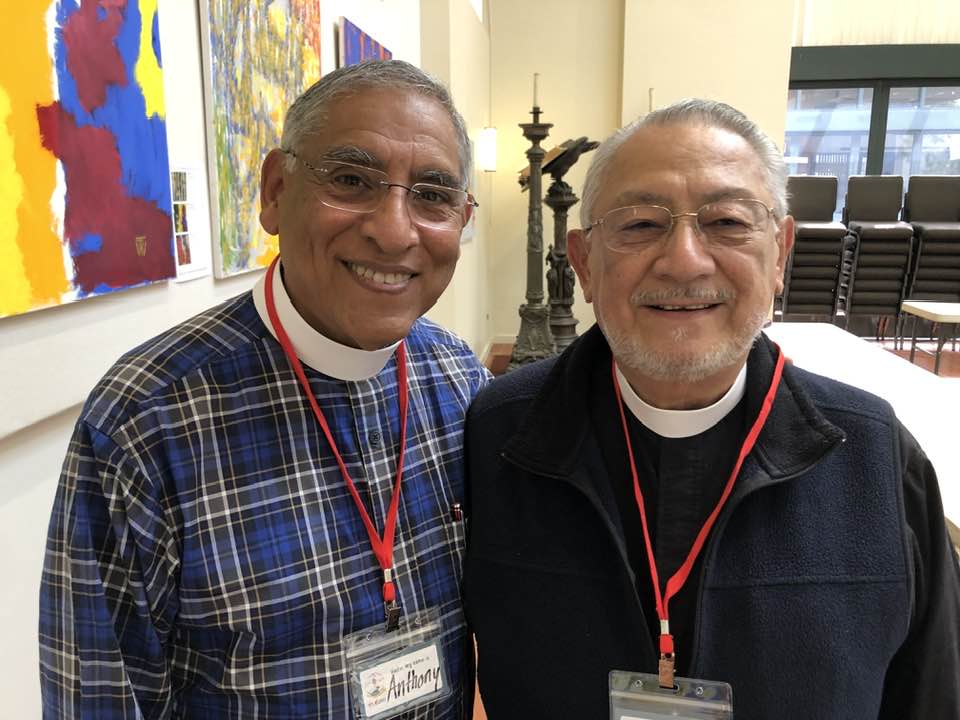
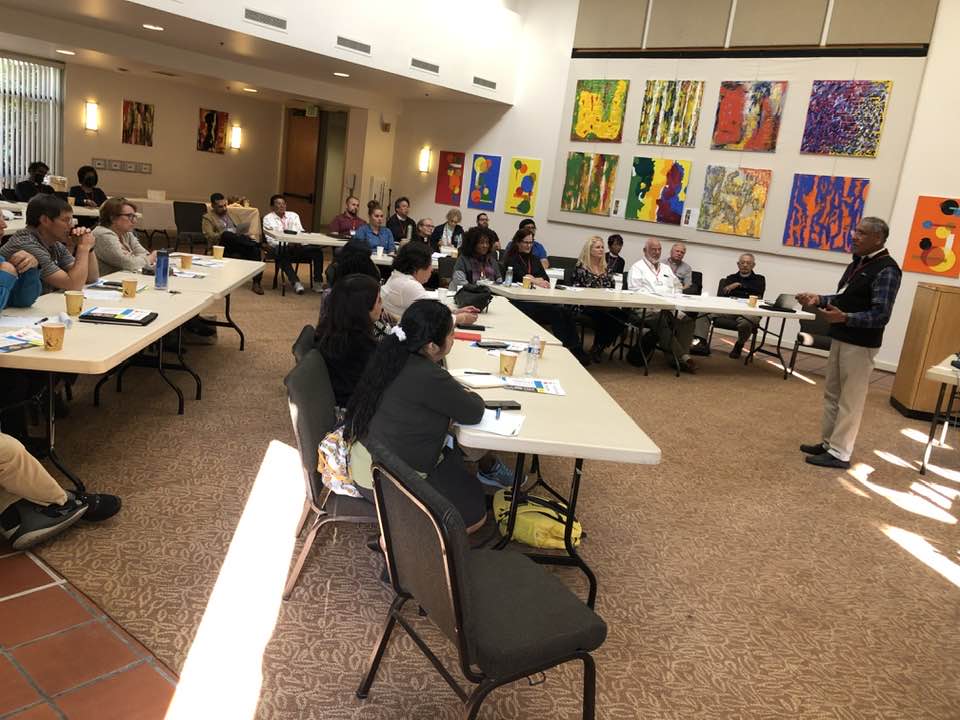
Some 40 lay and ordained leaders representing 13 Episcopal Diocese of Los Angeles missions and parishes spent two days walking the New Camino this weekend at St. Paul’s Commons, Echo Park, learning from experts all over the country how to do Hispanic ministry without necessarily speaking a word of Spanish.
Sponsored by the diocesan Program Group on Hispanic Ministries under the leadership of the Rev. Carlos Ruvalcaba, New Camino is the brainchild of the Rev. Canon Anthony Guillen and his Hispanic ministry think tank at The Episcopal Church, including the Rev. Al Rodriguez, who gave us a preview last November at Diocesan Convention in Riverside. Experts from Texas, Kansas City, and Seattle called in to the working sessions by Zoom.
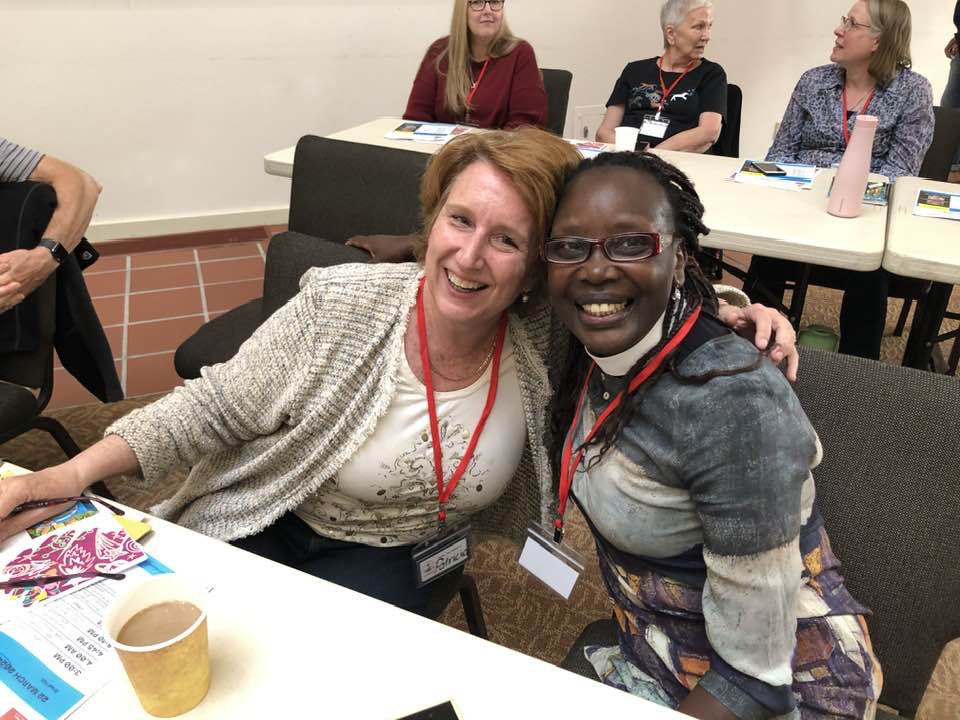 Canon Guillen got us started Friday afternoon with stunning statistics, including that the U.S. is the second largest Latino country in the world, after Mexico and before Colombia. Hundreds of counties spread all over the country now have more than 100,000 Hispanic residents. Forty-seven percent of Latino high school graduates, the same percentage as Anglos, are enrolling in college.
Canon Guillen got us started Friday afternoon with stunning statistics, including that the U.S. is the second largest Latino country in the world, after Mexico and before Colombia. Hundreds of counties spread all over the country now have more than 100,000 Hispanic residents. Forty-seven percent of Latino high school graduates, the same percentage as Anglos, are enrolling in college.
And just like young people everywhere, they’re tending not to come back to church until space opens up in their lives for weddings and baptisms. But they’re settling down in all the neighborhoods of our diocese, representing over a dozen nations in North, Central, and South America. I wouldn’t mind people saying America first so much if I thought they really meant America. In the free trade era, we are a continental economy and workforce, sharing deep cultural and historical ties. Curiosity, the most powerful evangelism tool of the fully formed Christian, should make us behold our neighbors and wonder how they got here, each one eager in this anxious, isolating time to be welcomed and served with culturally attuned ministry and programming.
Our diocese’s Spanish-speaking churches are doing a great job serving the immigrant generation and many of their children and grandchildren. But from the second generation on, most want conversation and worship in English. The Rev. Ed Gomez, vicar of St. Paul’s/San Pablo’s Episcopal Church in Houston, told us this afternoon that they sometimes associate Spanish with a step back, a sign that they might not be successful. This shame is no doubt inculcated by racism and anti-immigrant scapegoating, at its worst these days in Texas.
New Camino participants went deep into these complexities this weekend. Fr. Ed says his immigrant generation members don’t enjoy bilingual services, since church is supposed to be a safe place, and they aren’t comforted by the language of ICE. By the same token, many English-speaking young people prefer hearing the “Padre Nuestro” their parents or grandparents taught them instead of the “Our Father.” The young people also want to hear their music in church, Fr. Ed said — folk, techno, and Selina in English. Finally, churches starting new service for these populations, or anyone, are wise to remember that lots of people are working on Sundays — but no worries, because there are six more days in the week for worship and program.
A lot to think about, I know — but we now have 40 more experts among us. Besides, I’m pretty sure the New Camino will pass through Los Angeles again before too long.
